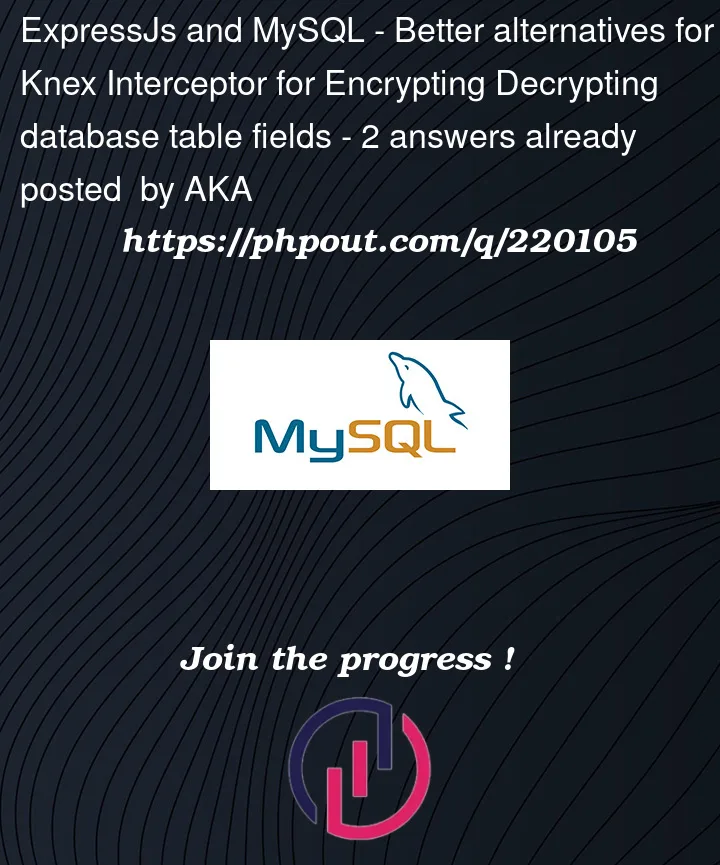I have a list of sensitive fields that needs to encrypted before inserting into my MySQL tables, and decrypt them post retrieving it. I thought of the following ways to implement this.
-
Implement a DATABASE Trigger that will encrypt/decrypt the values based on Insert/Update or Select. The problem with this approach is that, I have my own encryption and decryption function. So, storing the encryption password and salt in a secure place and accessing it from the Trigger doesn’t seem to work. I am currently using AWS Secret Manager to store the keys.
-
In the code, whenever I want to insert a sensitive filed, encrypt it using the function and then call the query. Likewise, once I got the encrypted value, decrypt it. But the problem with this approach is that, currently I have 10 such fields, this may increase or decrease. So, the code change needed will be too much. Wherever I am using this sensitive fields (for DB operations), I will have to call this encrypt/decrypt function.
-
The third approach which I have implemented today is that the
knexinterceptor:dbConnection.client.on('start', (builder) => { sensitiveFieldsInterceptor(builder); });In this centralised approach,
sensitiveFieldsInterceptoris the interceptor attached to theknexobject. This has Event Listeners and I can modify thequeryandquery response. In the interceptor, I am checking if the sensitive fields are involved in the query or query response and accordingly, I am encrypting/decrypting the values. This is much simpler because I just need to keep an array of sensitive fields to compare against.const sensitiveFieldsInterceptor = (builder) => { builder.on('query', (queryData) => { // if query has sensitive field present encrypt(columnValue, encryptPassword, encryptSalt); )}; builder.on('query-response', (response, response_obj, context) => { // if response_obj has sensitive field present decrypt(columnValue, encryptPassword, encryptSalt); )} }
The problem I am facing today is that, if the result has more records, the decryption is taking too much and leading to timeout exception. So, I am confused that is this the right approach or should I do something else. If this is the right approach, how do I optimise this further?




2
Answers
Even if you had access to the secret keys from the database, the first variant is bad because your data can still be displayed as plain text in the query logs.
2nd and 3rd variants are the same, you’re encrypt and decrypt data in code, no matter with knex or custom interceptor (i didn’t hear that knex interceptors are slow).
If you are using a crypto library, then there are several points in it. Each cryptographic operation is performed in a separate thread, and when the thread pool becomes empty, the pending operations are queued. By default, only 4 threads will be created in the thread pool during application startup. If you try to encrypt 12 strings, node.js will execute the first 4, the remaining 8 will wait for their turn. If your encryption algorithm is slow, it can lead to a significant decrease in performance.
You can try to increase Thread Pool size (UV_THREADPOOL_SIZE) or use child processes or worker threads for encryption/decryption.
Rolling your own crypto on top of mySQL is a risky endeavor. If you have requirement for encryption-at-rest (very common with health data and financial systems) then you should first consider mySQL’s built-in encryption mechanisms.